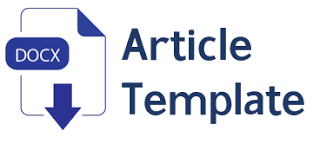INTERNALISASI EKSTERNALITAS PAJAK KARBON : TINJAUAN LITERATUR SISTEMATIS
Kata Kunci:
Internalisasi eksternalitas, pajak karbon, strategi implementasiAbstrak
Tinjauan literatur sistematis ini mengkaji internalisasi eksternalitas pajak karbon dengan merujuk pada artikel ilmiah, studi empiris, kerangka teoritis, dan wawasan praktis guna menemukan strategi efektif dalam implementasi pajak karbon di Indonesia. Pajak karbon telah terbukti sebagai instrumen yang efektif dalam mengurangi emisi karbon di berbagai negara, seperti Swedia, British Columbia di Kanada, dan Uni Eropa. Swedia, sebagai contoh, berhasil mengurangi emisi CO2 per kapita secara signifikan tanpa menghambat pertumbuhan ekonomi sejak menerapkan pajak karbon pada tahun 1991 dengan tarif awal sekitar $30 per ton CO2. British Columbia juga mencatat kesuksesan serupa dengan pajak karbon netral yang diperkenalkan pada tahun 2008. Meskipun demikian, tantangan dalam implementasi pajak karbon tetap ada, termasuk fluktuasi harga karbon dan resistensi politik, seperti yang terjadi di Australia. Pemerintah Indonesia telah mengesahkan dua peraturan terkait pajak karbon pada tahun 2021, yaitu Peraturan Presiden No. 98 Tahun 2021 tentang Penerapan Nilai Ekonomi Karbon dan Undang-Undang No. 7 Tahun 2021 tentang Harmonisasi Peraturan Perpajakan sebagai bagian dari upaya mitigasi perubahan iklim. Studi literatur sistematis ini menyoroti pentingnya desain kebijakan yang efektif dan implementasi yang tepat dalam menginternalisasi eksternalitas pajak karbon di Indonesia, yang menjadi kunci untuk mencapai tujuan mitigasi perubahan iklim.
Referensi
Aldy, J. E., & Stavins, R. N. (2012). "The Promise and Problems of Pricing Carbon: Theory and Experience." Journal of Environment and Development.
Andersson, J. J. (2019). "Carbon taxes and CO2 emissions: Sweden as a case study." American Economic Journal: Economic Policy.
Arrow, K. J. (1963). "Uncertainty and the Welfare Economics of Medical Care." American Economic Review.
Bureau, B., & Croute, P. (2014). "Distributional effects of a carbon tax on car fuels in France." Energy Economics.
Carattini, S., Baranzini, A., Thalmann, P., Varone, F., & Vöhringer, F. (2017). "Green Taxes in a Post-Paris World: Are Millions of Nays Inevitable?" Environmental and Resource Economics.
Coase, R. H. (1960). "The Problem of Social Cost." Journal of Law and Economics.
Cramton, P., Ockenfels, A., & Stoft, S. (2017). "An International Carbon-Price Commitment Promotes Cooperation." Economics of Energy & Environmental Policy.
Crowley, K. (2013). "Australia's carbon pricing mechanism: Promise and pitfalls." Climate Policy.
Ellerman, A. D., Joskow, P. L., & Harrison, D. (2010). The European Union's Emissions Trading System in perspective. Pew Center on Global Climate Change.
Fischer, C., & Newell, R. G. (2008). "Environmental and Technology Policies for Climate Mitigation." Journal of Environmental Economics and Management.
Goulder, L. H., & Schein, A. R. (2013). "Carbon taxes vs. cap and trade: A critical review." Climate Change Economics.
Hallegatte, S., et al. (2013). Risk Management Approaches for Climate Change Adaptation. Springer.
IPCC. (2018). Global Warming of 1.5°C: An IPCC Special Report.
Kementerian Keuangan Republik Indonesia. (2021). Undang-Undang Harmonisasi Peraturan Perpajakan (UU HPP).
Metcalf, G. E. (2019). Paying for Pollution: Why a Carbon Tax is Good for America. Oxford University Press.
Moraga, J., & Bureau, B. (2020). "Carbon tax in a climate policy context: Chile’s experience." World Bank Group.
Murray, B. C., & Rivers, N. (2015). "British Columbia’s revenue-neutral carbon tax: A review of the latest ‘grand experiment’ in environmental policy." Energy Policy.
Nelson, G. C., et al. (2014). "Climate change effects on agriculture: Economic responses to biophysical shocks." Proceedings of the National Academy of Sciences.
Nordhaus, W. D. (2008). A Question of Balance: Weighing the Options on Global Warming Policies. Yale University Press.
Ostrom, E. (1990). Governing the Commons: The Evolution of Institutions for Collective Action. Cambridge University Press.
Parry, I. W. H., & Williams, R. C. (2012). "Moving U.S. Climate Policy Forward: Are Carbon Taxes the Only Good Alternative?" Resources for the Future.
Pearce, D. (1991). "The Role of Carbon Taxes in Adjusting to Global Warming." Economic Journal.
Pigou, A. C. (1920). The Economics of Welfare. Macmillan.
Qi, T., & Lu, J. (2021). "China's carbon market: Lessons learned from the pilot trading systems and prospects for a national system." Energy Policy.
Sovacool, B. K., Pigou, A. C. (1920). The Economics of Welfare. Macmillan.
Spence, M., & Zeckhauser, R. (1971). "Insurance, Information, and Individual Action." American Economic Review.
Stern, N. (2007). The Economics of Climate Change: The Stern Review. Cambridge University Press.
Stiglitz, J. E., & Stern, N. (2016). Report of the High-Level Commission on Carbon Prices. World Bank.
World Bank Group. (2020). State and Trends of Carbon Pricing 2020. Washington, DC.
WHO. (2018). Ambient Air Pollution: Health Impacts.
Carbon Tax Report – GIZ Pool of Experts DRM on Government Revenue dengan judul: “Carbon Pricing Assessment: Cap and Tax Scheme for Coal-fired Power Plant in Indonesia – Page 21-25”.










